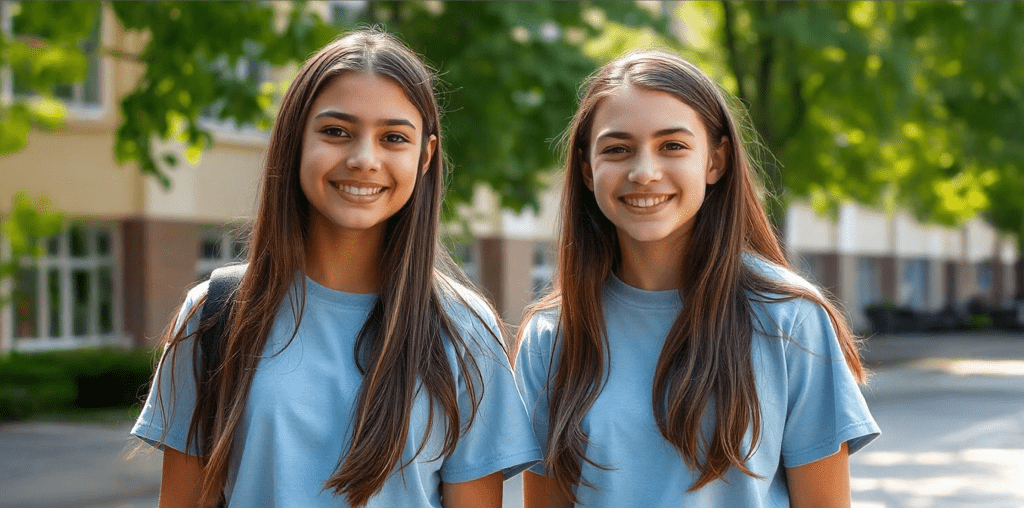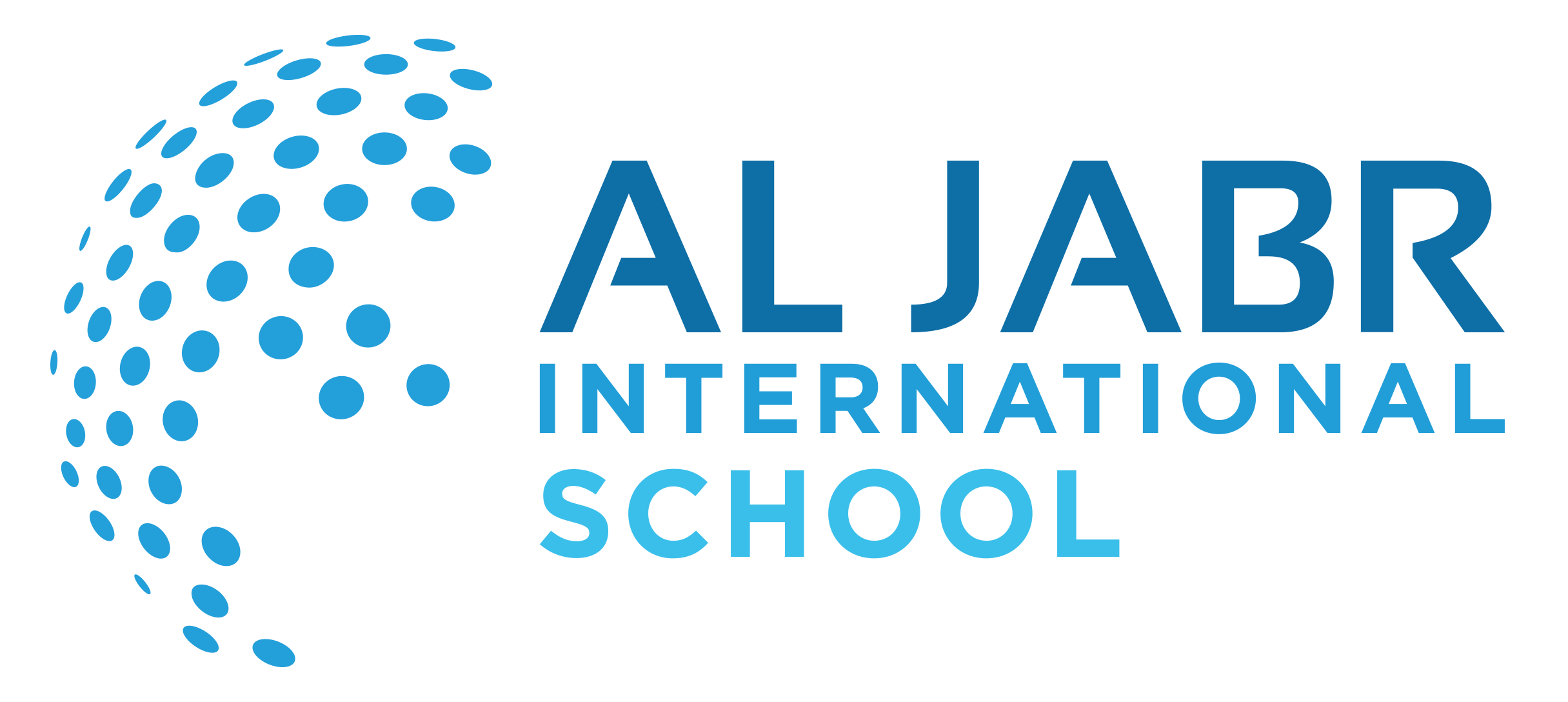General Education
Middle school marks students' entry into secondary education. It is organized into four levels, from 6ème to 3ème, and structured around 2 educational cycles.
Particular attention is given to welcoming students, with integration and cohesion sessions at the start of the school year.
La classe de 6Starting in 6ème, students will take one hour of Scientific English. This hour will introduce students to a field of scientific lexis that is not covered in the usual practice of the language, and will pave the way for a field that is crucial for anyone pursuing studies in science. doit permettre aux élèves de s’adapter à l’organisation et au cadre de vie du collège, ainsi que d’assurer la continuité des apprentissages entrepris dans les deux premières années du cycle dans les classes de CM1 et de CM2.
Particular attention is given to welcoming students, with integration and cohesion sessions at the start of the school year. Additionally, educational activities are organized throughout the CM2 year to prepare them for the transition to collège, ensuring a successful adaptation to secondary education.
The aim of this cycle is to develop students' skills across various disciplines and cross-disciplinary paths, preparing them for further education and active participation in society's future evolution. The cycle concludes with the Diplôme National du Brevet examination.
The aim of this cycle is to develop students' skills across various disciplines and cross-disciplinary paths, preparing them for further education and active participation in society's future evolution. The cycle concludes with the Diplôme National du Brevet examination.

Programs ensure the acquisition of fundamental knowledge and skills. They reflect and specify the objectives defined by the new common base. This is structured around five areas:
- Languages for thinking and communicating
- Methods and tools for learning
- Personal and civic development
- Natural and technical systems
- Representations of the world and human activity
These programs, designed to be simple and easy to understand, aim to help all students succeed and enhance the quality of teaching and learning.
- Their objectives are clear and defined according to a progression adapted to children's learning.
- Middle school program: https://www.education.gouv.fr/les-programmes-du-college-3203 https://www.education.gouv.fr/les-programmes-du-college-3203
Compulsory courses
Programs ensure the acquisition of fundamental knowledge and skills.
Middle school courses are organized into disciplines:
- French
- Mathematics
- History-geography
- Civic and moral education
- Modern languages
- Life and earth sciences
- Physics and chemistry
- Technology
- Physical education and sports
- Plastic arts
- Musical education
- Personalized support
At AIS, Art, Physical Education and Music are taught in English. Students also have one hour of Scientific English.
In 6ème, life and earth sciences, physics-chemistry, and technology can be grouped together under the heading of "Science and Technology," following a common curriculum that aligns with the early years of Cycle 3. Interdisciplinary practical lessons (EPI) are additional lessons that form part of the compulsory curriculum and are implemented in the form of projects.
The objectives for the end of each cycle are defined by national curricula, enabling students to work on the knowledge and skills of the Common Base. These programs encompass History of Art and Media and Information Literacy, which are not tied to a particular subject but are taught across the board, with support from the librarian and the CDI (Documentation and Information Center).
Al Jabr also promotes the responsible use of AI among students by providing lessons on its use and ethics. It is essential for our students to be informed of the dangers of unethical use while mastering the elements to utilize it effectively.
This education runs parallel with Media and Information Literacy, as well as Civic and moral education.
Optional teaching
Starting in 5ème, Al Jabr offers its students the possibility of learning a third foreign language, with a choice between Spanish and German.Starting in 6ème, students will take one hour of Scientific English. This hour will introduce students to a field of scientific lexis that is not covered in the usual practice of the language, and will pave the way for a field that is crucial for anyone pursuing studies in science. langue vivante à partir de la 5Starting in 6ème, students will take one hour of Scientific English. This hour will introduce students to a field of scientific lexis that is not covered in the usual practice of the language, and will pave the way for a field that is crucial for anyone pursuing studies in science. avec un choix possible entre l’espagnol et l’allemand.
Si le niveau général de l’élève le permet, le choix de cet enseignement optionnel est fortement recommandé, il permettra aux élèves de mettre en valeur un véritable capital linguistique pour accéder aux meilleurs études supérieures ensuite.
« The Common Base of Knowledge, Skills and Culture » is the body of knowledge, skills, values and attitudes needed to succeed in school, as an individual and as a future citizen. From elementary school through to the final year of compulsory education, pupils progressively acquire the skills and knowledge of this common foundation. Teachers certify the level achieved in each component of the Common Base at the end of each teaching cycle. This validation accounts for 50% of the final mark for the Diplôme National du Brevet.
https://www.education.gouv.fr/le-socle-commun-de-connaissances-de-competences-et-de-culture-12512
At the end of the third year of secondary school, students face a significant milestone: their first exam, the Diplôme National du Brevet (DNB). This diploma is awarded based on accumulated points from continuous assessment of the common core and the final exam. The final exams include:
- French (3 hours)
- mathematics (2h)
- history and geography and Civics (2h)
- Sciences (1h) (2 of the 3 disciplines): physics-chemistry, life and earth sciences, technology. Students are informed of the disciplines involved approximately one month before the test.
- An oral exam: presentation of a project carried out in History of Art, or as part of an EPI or one of the educational pathways.
● For students enrolled in the international section, two oral exams in Arabic and Arabic history-geography.
- -
Sorties pédagogiques et culturelles (au Maroc et à l’étranger), ateliers artistiques et projets collectifs sont organisés toute l’année, impliquant les élèves, les professeurs et le corps administratif. - Educational and cultural outings (in Morocco and abroad), artistic workshops and collective projects are organized throughout the year, involving students, teachers and administrative staff.
- Participation in numerous national and international competitions: Maths sans frontières, la dictée du Maroc, Prix Jacaranda, MUN...
- Educational trips are scheduled to Paris, Dublin, London, Madrid, Berlin, Volubilis, Marrakech...
● Events are organized: delegate training, Arabic Language Day, World French High School Week, Language Week, GQS (Gestes Qui Sauvent) training, conferences and debates... - Fun and recreational events are also part of the students' schedule: integration outings, bal des 3èmes, bal des terminales, kermesses, theme days...
ASAJ is the Al Jabr sports association, and participation in the sports activities offered by the school is voluntary. You can take part in a wide range of activities as a player, competitor, referee, reporter or organizer. Al Jabr students take part in numerous sporting competitions in Morocco and abroad, achieving excellent results and rankings: UNSSFM competitions, JIJ, RSS Berlin, Cross national, climbing competitions, Morocco Zone Games...
The school gets involved!
Al Jabr School actively engages with associations, with students and teachers combining their efforts to support underprivileged populations. They organize meals, fairs, garage sales, collections of cash donations, foodstuffs, school supplies, games... for the benefit of various organizations:
- Bayti
- SOS Village d’enfants
- Sourire de Réda
- Protection des animaux
- Agir pour un sourire
To carry out these various projects, students can join the school's various clubs.


